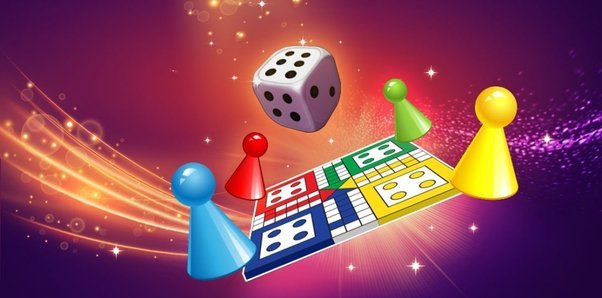Ludo King has become one of the most popular mobile games among kids in recent years. With its colorful design, addictive gameplay, and multiplayer mode, it’s no wonder children are drawn to this digital rendition of the classic board game. However, as parents, it’s important to understand the pros and cons of letting our kids immerse themselves in the virtual world of Ludo King.
On the positive side, Ludo King can aid in the mental development of children. It helps them develop strategic thinking and problem-solving skills as they plan their moves and adapt to unpredictable gameplay. Moreover, the game encourages social interaction and teamwork when played with friends or family.
In this article, we will delve into the pros and cons of Ludo King for kids’ mental development, providing a balanced perspective to help parents make informed decisions about their children’s gaming habits.
Pros of playing Ludo King for kids’ mental development
Ludo King offers several benefits for kids’ mental development. One of the key advantages is the enhancement of critical thinking skills. When playing the game, children are constantly analysing the board and strategizing their moves to achieve the best possible outcome. This requires them to think critically and evaluate different options before making a decision. By engaging in this type of thinking, kids develop the ability to assess situations, make informed choices, and anticipate the consequences of their actions.
Furthermore, Ludo King encourages social interaction and teamwork. The multiplayer mode allows kids to play with their friends or family members, fostering communication and collaboration. They learn to take turns, negotiate moves, and work together towards a common goal. This not only strengthens their interpersonal skills but also promotes a sense of camaraderie and cooperation.
Cons of playing Ludo King for kids’ mental development
While there are clear benefits to playing Ludo King, it’s important to consider the potential drawbacks as well. One major concern is the impact of excessive gaming on physical activity. When kids spend long hours playing Ludo King, they are likely to engage in sedentary behaviour, leading to a decrease in physical exercise. This can have negative consequences on their overall health and well-being, as regular physical activity is crucial for proper growth and development.
Additionally, the addictive nature of Ludo King can be a cause for concern. Children may become so engrossed in the game that they neglect other responsibilities, such as schoolwork or household chores. This can lead to a decline in academic performance and a lack of focus on important tasks. It is important for parents to set limits and establish healthy gaming habits to prevent excessive reliance on Ludo King or any other game.
The impact of Ludo King on critical thinking skills
Ludo King has a positive impact on children’s critical thinking skills. The game requires players to analyse the board, calculate probabilities, and strategize their moves. This constant evaluation of different options helps kids develop critical thinking abilities. They learn to consider different scenarios, weigh the benefits and drawbacks of each move, and make informed decisions. These skills go beyond the game and can be applied to real-life situations, contributing to the overall cognitive development of children.
Moreover, Ludo King provides an opportunity for children to practice patience and persistence. The game can be unpredictable, and players may face setbacks or obstacles that require them to adapt their strategies. By persevering through challenges and maintaining a positive attitude, kids learn valuable life skills such as resilience and determination. These qualities are essential for success in various aspects of life, from academics to personal relationships.
Ludo King and problem-solving abilities
Playing Ludo King enhances children’s problem-solving abilities. The game presents players with a variety of challenges, such as deciding which piece to move, anticipating opponents’ moves, and strategically positioning their pieces on the board. This requires kids to think critically and come up with innovative solutions to overcome obstacles. They learn to analyse the current state of the game, consider different possibilities, and devise effective strategies to achieve their goals. These problem-solving skills can be transferred to real-life situations, helping kids become resourceful and adaptable individuals.
Furthermore, Ludo King promotes logical reasoning. Children need to understand the rules of the game, apply logical thinking to determine the best moves, and predict the outcomes of their actions. This logical reasoning ability helps in developing analytical skills, enabling kids to break down complex problems into smaller, manageable parts. By exercising their logical thinking skills through Ludo King, children become better equipped to tackle challenges in various academic subjects and real-life scenarios.
The role of Ludo King in social interaction and teamwork
One of the significant advantages of Ludo King is its ability to foster social interaction and teamwork. When played in multiplayer mode, kids have the opportunity to engage with their friends or family members. This promotes communication, collaboration, and the development of social skills. They learn to take turns, negotiate moves, and work together towards a common goal. This cooperative gameplay not only strengthens their interpersonal relationships but also teaches them valuable lessons about compromise, empathy, and effective communication.
Moreover, Ludo King can be a great bonding activity for families. It provides an opportunity for parents and children to spend quality time together, engaging in friendly competition and creating lasting memories. By playing Ludo King as a family, kids learn the importance of sportsmanship, fair play, and respecting others’ turns. These values can be transferred to other aspects of life, helping children build positive relationships and become well-rounded individuals.
Ludo King and cognitive development
Ludo King plays a role in the cognitive development of children. The game requires players to use their memory skills to remember the positions of the opponents’ pieces, plan their moves, and anticipate future outcomes. This exercise of memory helps improve children’s recall abilities and enhances their overall cognitive functioning.
Additionally, Ludo King promotes spatial awareness and visual perception. Players need to analyse the board, assess the positions of their own and opponents’ pieces, and make decisions based on this spatial information. By engaging in this type of gameplay, children develop their spatial reasoning skills, which are crucial for various academic subjects, including mathematics and science.
Furthermore, Ludo King can contribute to the development of concentration and focus. In order to succeed in the game, players need to pay close attention to the board, their opponents’ moves, and the potential consequences of their own actions. This level of concentration helps kids improve their ability to stay focused on tasks and ignore distractions, which can be beneficial in academic settings and everyday life.
Conclusion
Ludo King, like any other mobile game, has its pros and cons when it comes to kids’ mental development. On the positive side, it enhances critical thinking skills, problem-solving abilities, and social interaction. However, it is important to be mindful of the potential drawbacks, such as decreased physical activity, limited face-to-face social interaction, and the addictive nature of the game.
As parents, it is crucial to strike a balance between allowing our kids to enjoy Ludo King and ensuring they engage in other activities that promote their overall well-being. Setting time limits, encouraging outdoor play, and maintaining open communication about gaming habits can help create a healthy gaming environment for children. Ultimately, with proper guidance and moderation, Ludo King can be a valuable tool for kids’ mental development.






